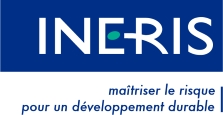Drinking water
Search tool of available alternatives to bisphenols
This search tool is a table in Microsoft® Excel format summarizing all the alternatives to bisphenols compiled by INERIS and mentioned in the Bisphenols Substitution website.
An alternative to polycarbonate for a large number of applications
BPA-free strategies for lining water pipes
Lining water pipes (applying resin to their walls) helps to prevent their deterioration. BPA-based resins are commonly used to line the pipes of drinking-water systems. This mini-dossier reviews the challenges in this area and the technical solutions currently available.
PLASTICS&PAPER 2016 – Brussels (Belgium)
Brussels will host from 6th to 9th December 2016 an European conference on food contact. This event is intended to all professionals of the food packaging industry (plastic or paper).
This conference will address inks, coatings and adhesives, as well as regulatory compliance, case studies of compliance will be presented.
International exhibition and congress EUROCOAT 2016 – Paris (France).
The international exhibition EUROCOAT, dedicated to coating professionals (paint, printing ink, varnish, glue and adhesive industries), will bring together from the 22 to the 24 March 2016 in Paris suppliers of coatings, raw materials, equipment and services.
Numerous branches of the coating industry, packaging and material handling equipment will be present.
A search tool of available alternatives to bisphenol A is online.
What are the main materials in which BPA is found?
What is the legislative and regulatory framework applicable to the BPA content of food-contact materials?
Review of alternatives to BPA
ANSES has produced a report reviewing the possible alternatives to BPA in its different fields of application. BPA is primarily used in polycarbonate, in epoxy resins coating the inside of food tins, and as a developer in thermal paper (till receipts). 73 alternative solutions were identified. Link to the ANSES report on BPA replacement.
Another report, in two volumes, presents the results of a collective study assessing the risks posed by BPA to human health.

